As part of a longer term project to build a (hopefully) stable voltage reference from a LTZ1000 heated buried zener, I ordered some precision Vishay resistors. This post details some fairly basic measurements I made with my home multimeter and a better quality one at work.
The resistors that I ordered were two 1 kilo ohm (1 kΩ) and a 10 kilo ohm (10 kΩ) from http://digikey.com. I need some others (the reference circuit needs 120 Ω, 13 kΩ and 70 kΩ resistors as well) but the other values are not available from stock and besides these two values I have are $19 and $28 each ! And I only went for the medium grade of moisture-resist (Details links for the 1k Y10731K 0.01% precision and 10k Y1453 0.005% precision resistors) rather than the full -on oil-filled, hermetically sealed ones which are even more expensive ! (e.g. the VHP101 10k which is an eye-watering $72!)
One issue is verifying the performance and values of these resistors; they are more precise than my lowly eBay-sourced HP3478A 5.5 digit bench multimeter can really verify, great little trooper that it is. Since no-one I know has a HP/Agilent/Keysight 3458A 8.5 digit DMM to do this properly (or a spare $10k), I had to “make do” with a 6.5 digit Agilent 34410A at work.
In order to accurately measure resistance, particularly low values, it is important to use so-called 4-wire or Kelvin measurement techniques (and have a multimeter that supports it, which is were bench DMMs win over handheld ones). This allows the DMM to measure the voltage drop across the leads and the resistor as well as just the current flowing, allowing it to correct for the resistance and voltage drop in the test leads. I have a set for the HP 3478A at home and the work 34410A also had a set. After selecting the right mode and setting the Number of PowerLine Cycles (NPLC; a way to average over and reject the 50 or 60 Hz noise coming from the mains) to 100, we were all good to go !
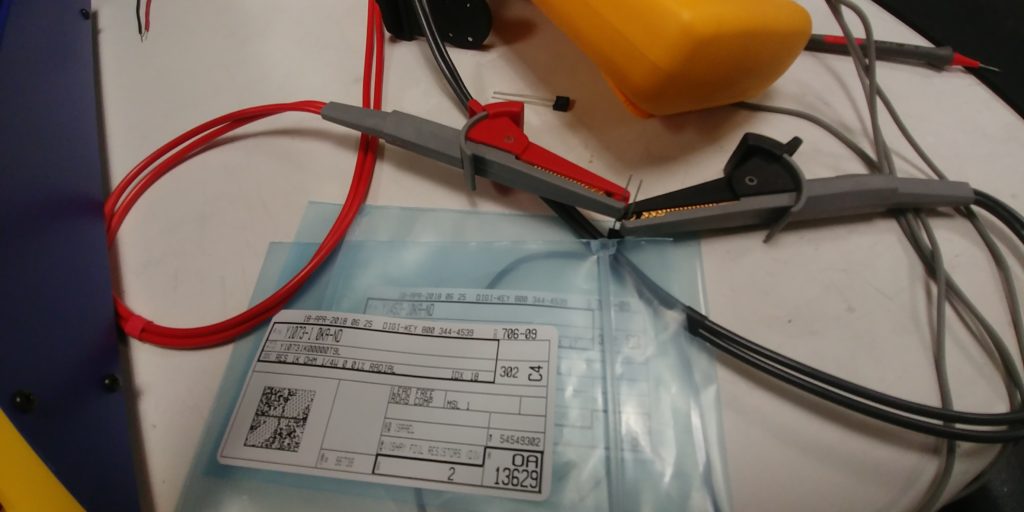
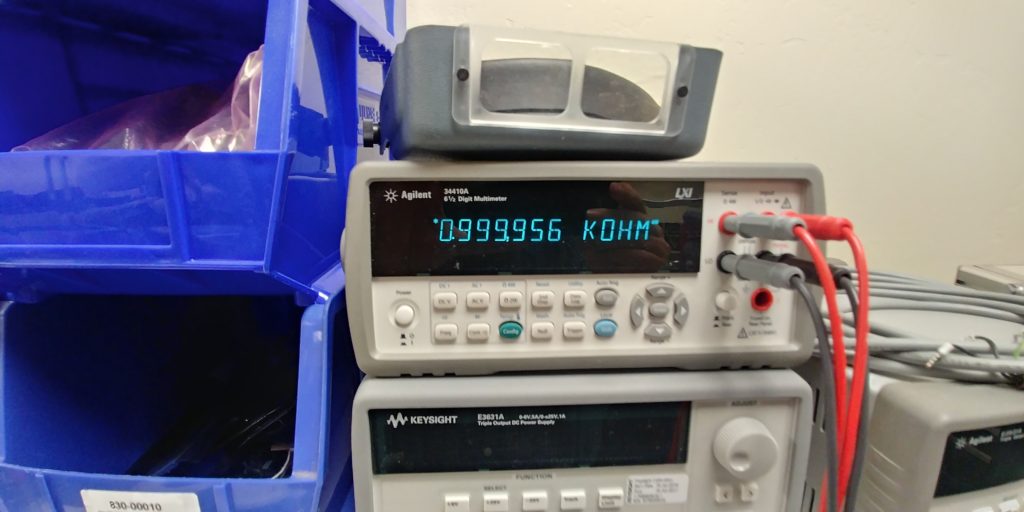
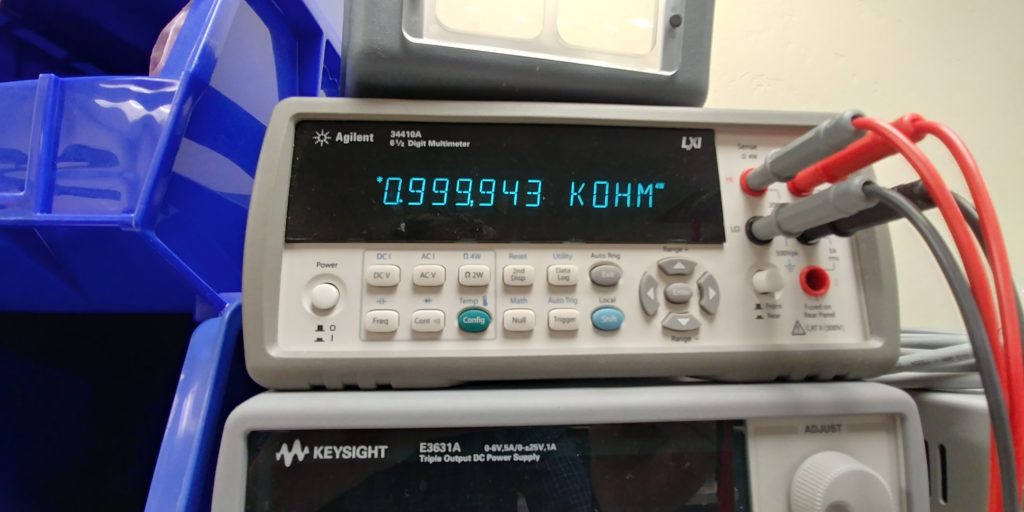
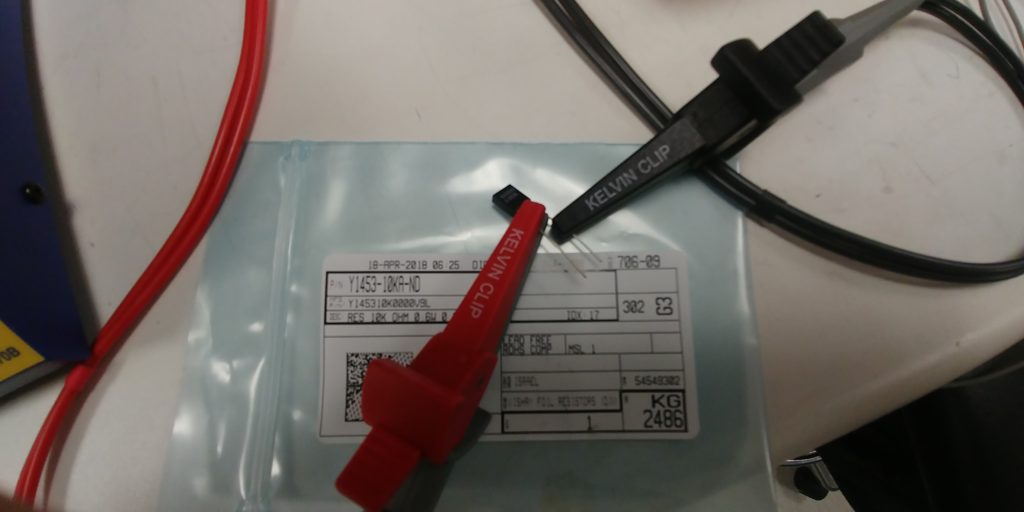
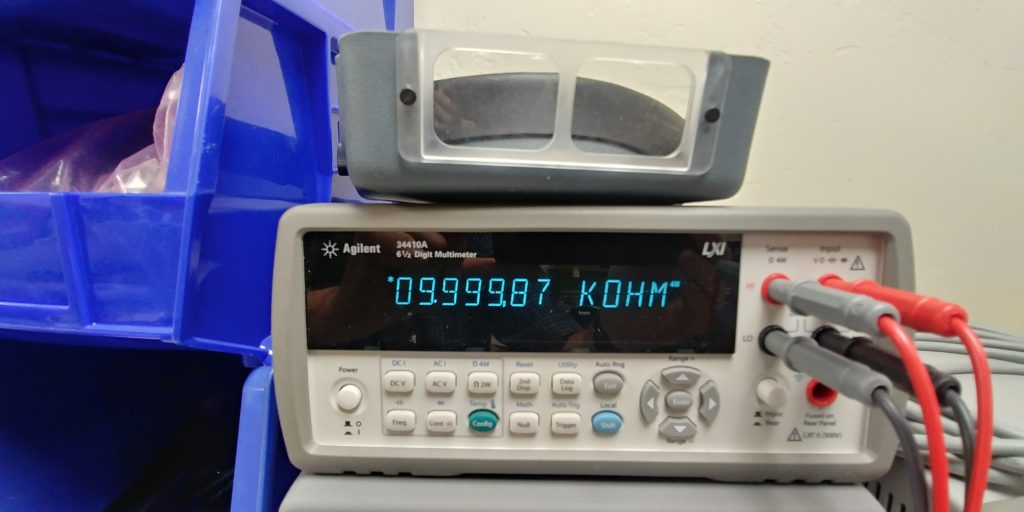
I need to do some calculations but given then tolerance on the resistance and the precision on the multimeter (which hasn’t had an official calibration in a while), these seem to be well within tolerance.

One thought on “Initial tests with precision resistors”
Comments are closed.